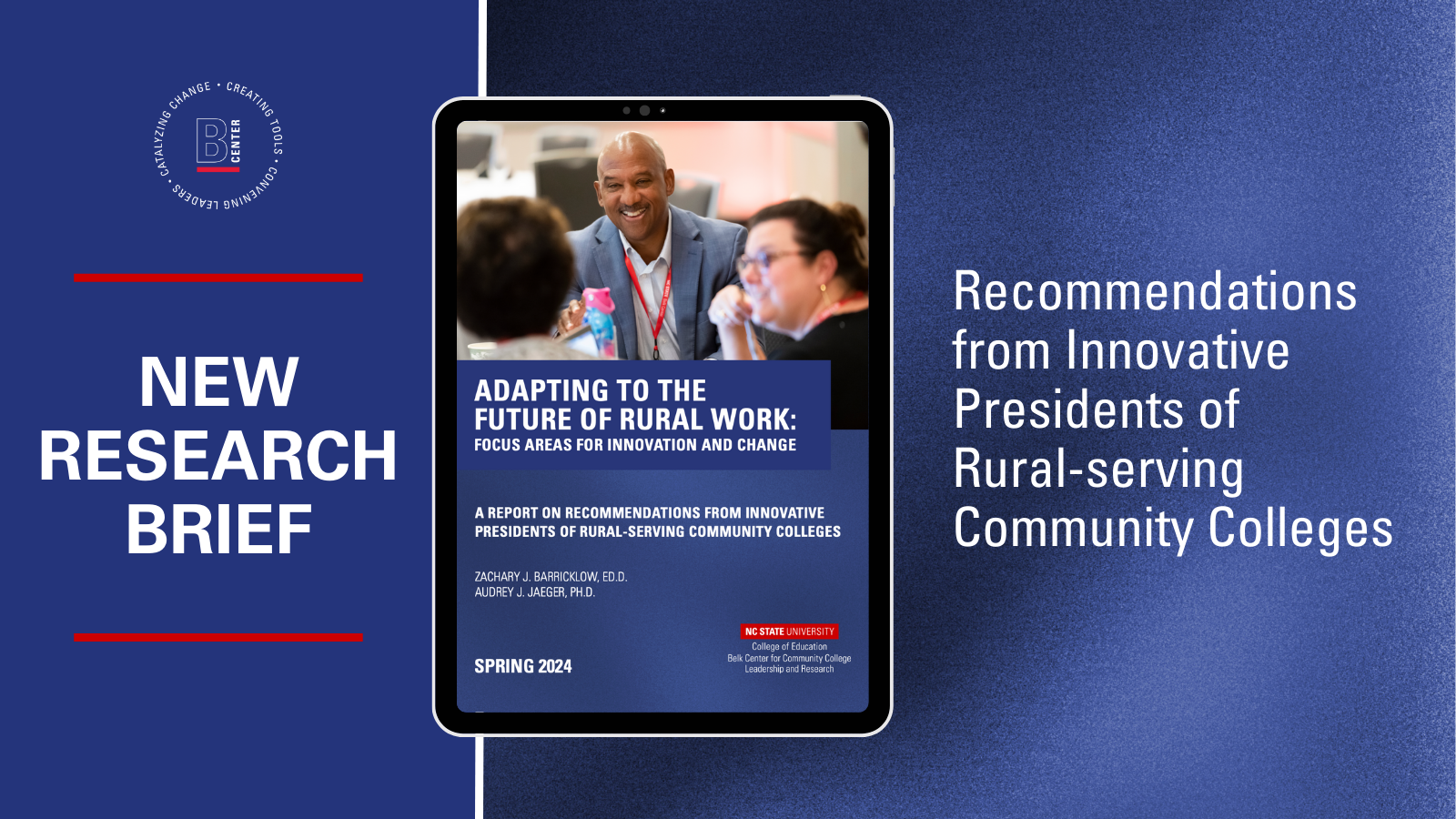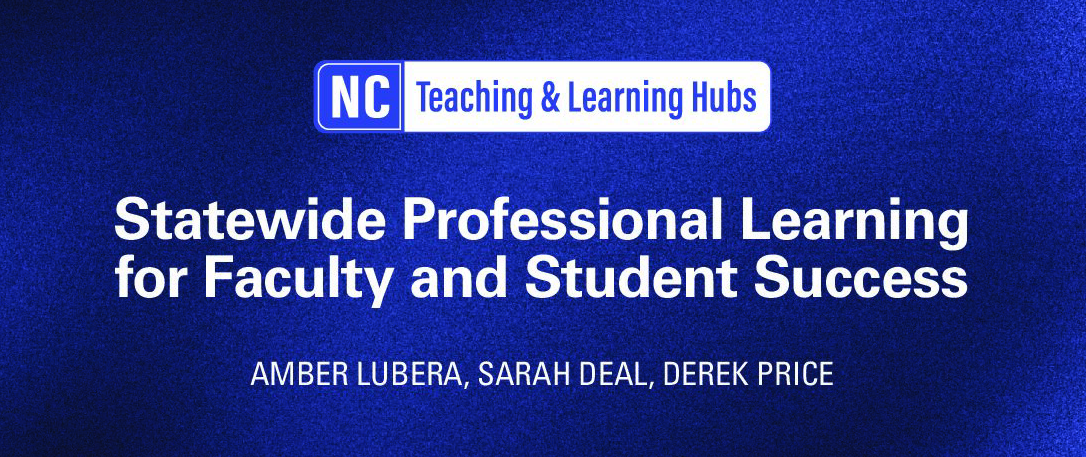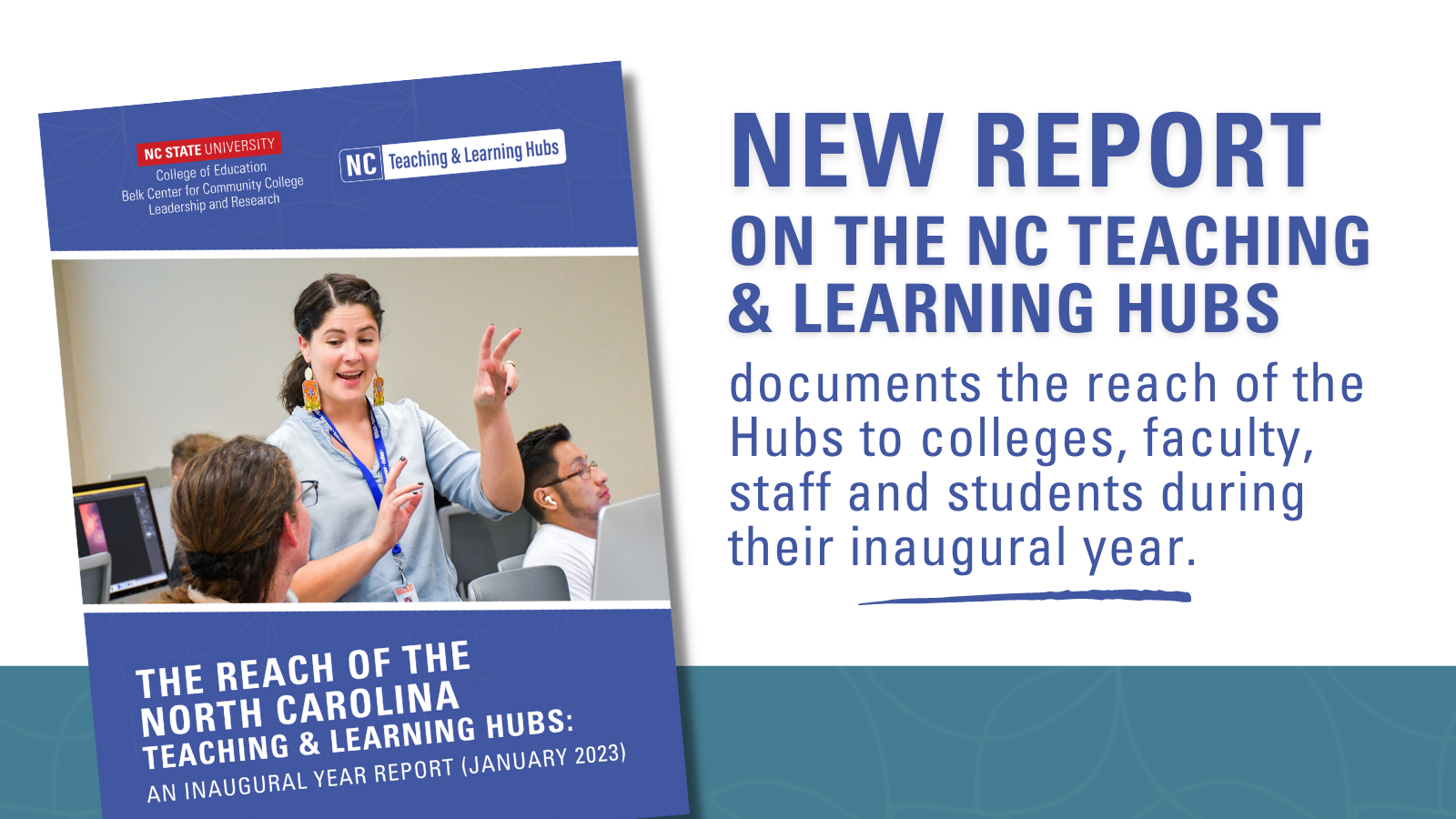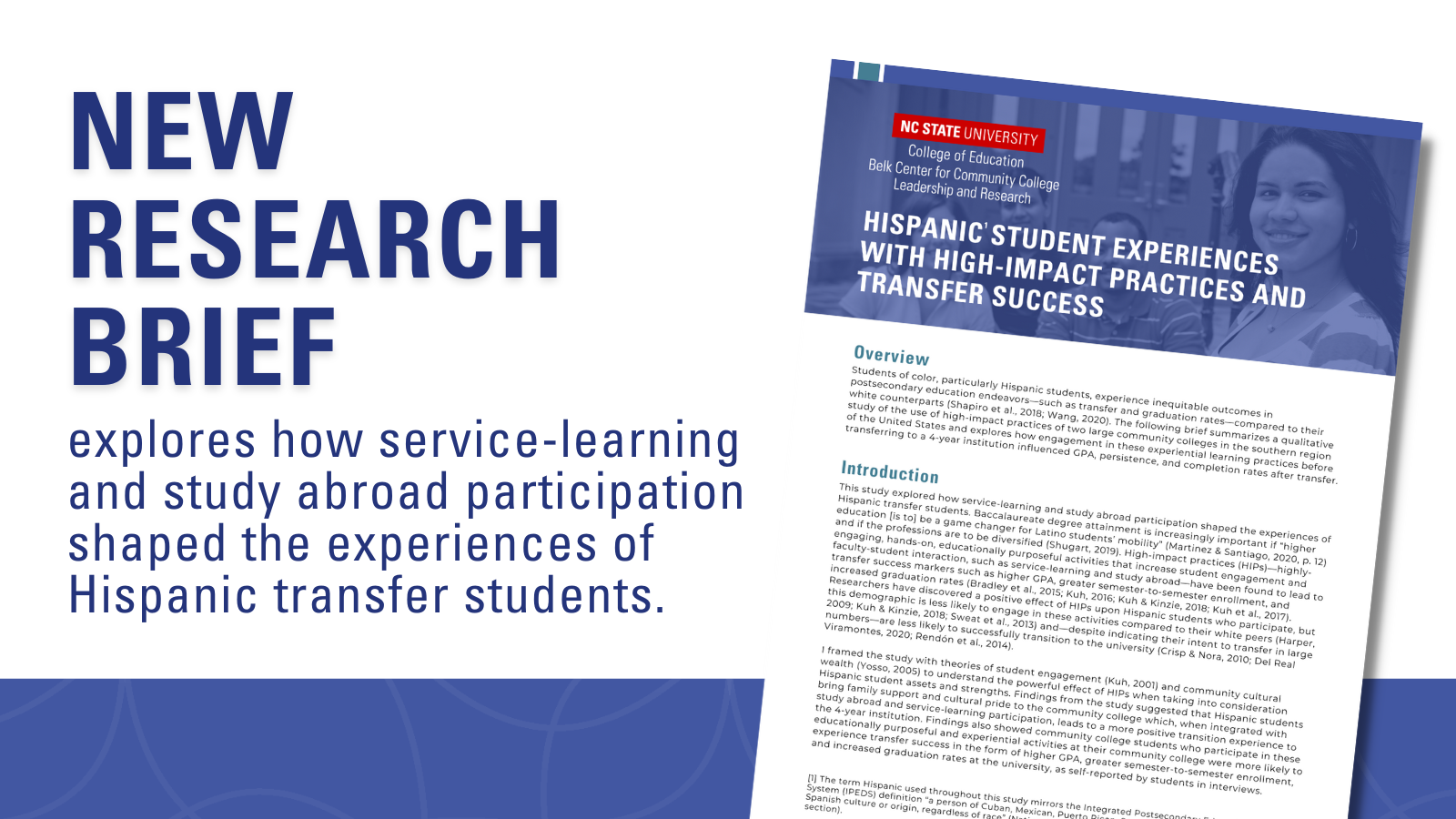New Belk Center Report Features Recommendations from Innovative Presidents of Rural-Serving Community Colleges
This is the first in a series of reports focused on leading innovation and change within community colleges.

Across the nation, rural-serving community colleges are anchors in their communities – providing tremendous resources to their students and the communities they serve. By advancing student equity, driving talent development, and generating economic impact, rural institutions are central catalysts for human capital development in their regions. But as the education and workforce development landscape continues to shift, innovation within community colleges is critical to effectively and equitably serve students.
In this new report, titled “Adapting to The Future of Rural Work: Focus Areas for Innovation and Change,” authors Dr. Zachary J. Barricklow and Dr. Audrey J. Jaeger share advice from community college presidents across 15 states – including North Carolina. The advice centers on recommendations for areas of innovation that rural-serving institutions should consider to more closely align with the changing nature of work.
In interviews with the presidents – which focused on how community colleges could further adapt to shifting demographic, technological and economic landscapes – the following key priorities emerged:
- Better Engagement of Underserved Student Populations: Declining K–12 populations and demographic shifts in rural areas require community colleges to better engage currently underserved prospective student populations, such as adults over the age of 24, ethnic minorities, low-income and first-generation students, males, and justice-involved individuals.
- Shorter, Stackable Credential Pathways: Rapidly changing technologies and task composition of jobs require shorter, stackable credential pathways that allow students to enter and exit postsecondary institutions with a meaningful credential aligned to labor market demand as efficiently as possible.
- More Convenient, Flexible Scheduling: An increasing number of working, caregiving adults in need of additional postsecondary education require scheduling options that are convenient and flexible, leveraging technology and individualized timing, pacing, and support.
- Whole Student Understanding and Support: An increased prevalence of basic-needs insecurities among students (housing, food, childcare, transportation, internet, mental health, and financial fragility) requires institutions to allocate resources to better understand and address individualized academic and nonacademic student needs.
- Economic Mobility Via Employment and Entrepreneurship: Economic opportunity and mobility are the predominant motivation for students enrolling in community college, and fulfilling this value proposition requires tighter linkages between educational pathways and either employment or entrepreneurship.
- Adoption And Promotion of Current Technologies: Increased digitalization, automation, and artificial intelligence in the labor market require community colleges to remain current, or slightly ahead, of the equipment and technology that graduating students will use in the workplace.
- Continuous Monitoring and Experimentation of New Models: Rapidly shifting external environmental factors related to the technological, economic, competitive, and demographic landscape surrounding higher education require community colleges to continuously monitor and experiment with new models of postsecondary education that ensure relevance and mission fulfillment.
In their continued research – and subsequent future briefs – Barricklow and Jaeger will delve into how these rural-serving community colleges can address the challenges of cultivating institutional culture and capacity to make such innovation happen successfully, as well as aligning policy to facilitate it.
About the Authors
Dr. Zach Barricklow is an Associate Vice President for Rural Innovation and Strategy at the North Carolina Community College System and a Liaison for Rural Engagement & Research at the NC State Belk Center.
Dr. Audrey J. Jaeger is the Executive Director of the Belk Center and W. Dallas Herring Professor of Community College Education.
About the Belk Center
The Belk Center for Community College Leadership and Research, at North Carolina State University, develops and sustains exceptional community college leaders who are committed to advancing equitable college access and student success, the social and economic mobility of their colleges’ students, and the economic competitiveness of their regions. The Center provides professional development and research related to current and emerging student success opportunities and challenges facing community college leaders and policymakers in North Carolina and the nation. The Belk Center commits to dismantling systemic barriers to racial equity in education through evidence-based strategies that focus on the outcomes of Black, Latin* and American Indian students.
- Categories:


